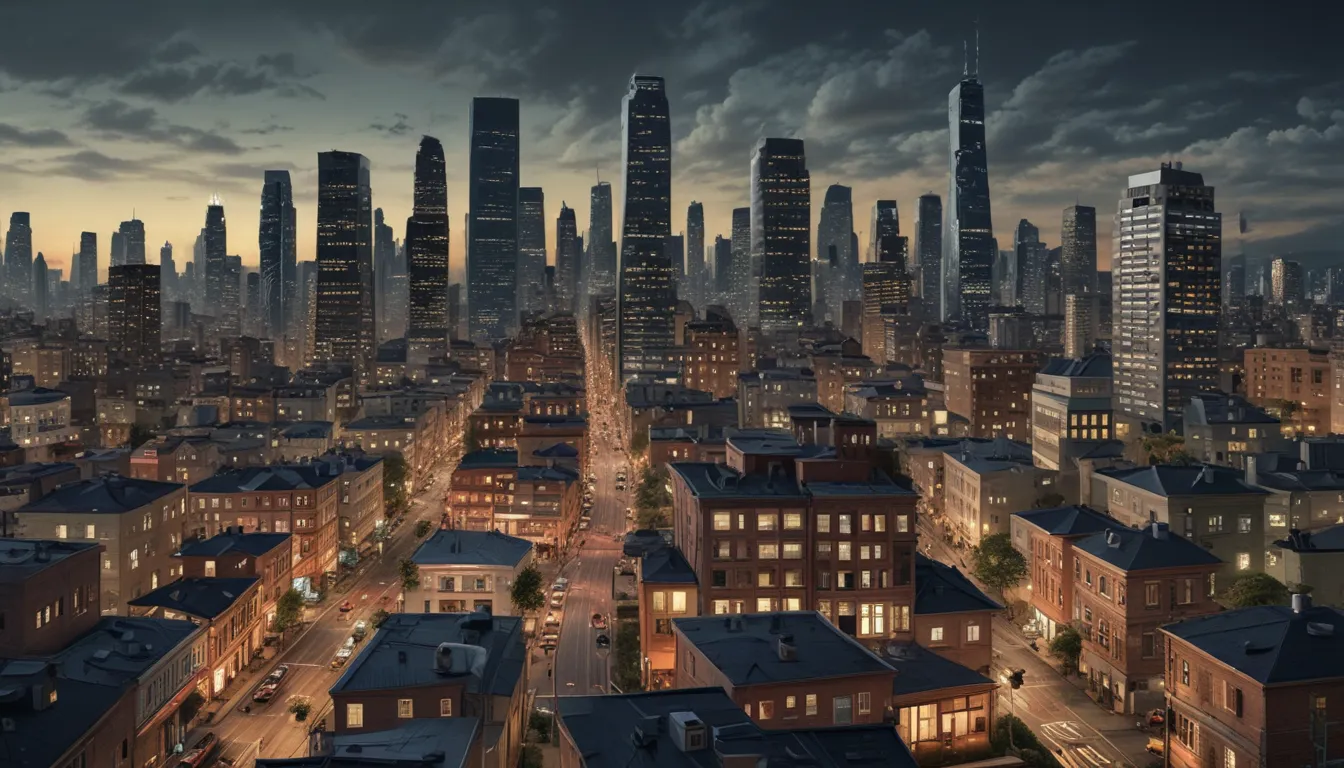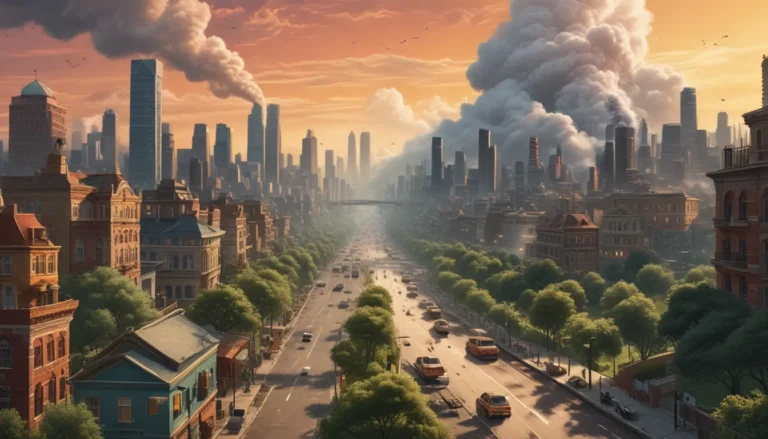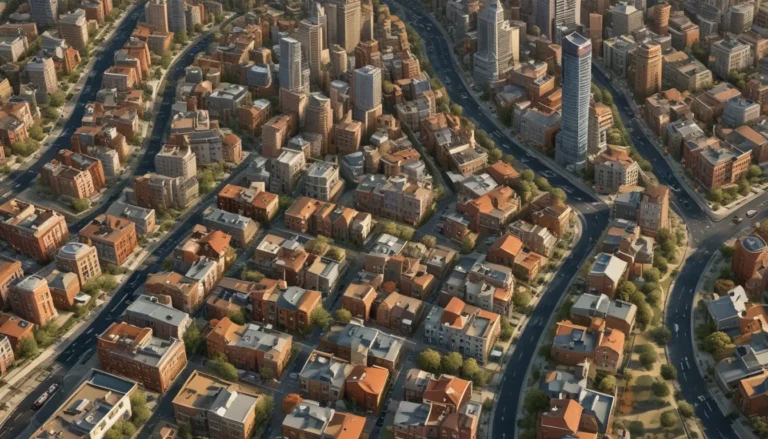A Note About Images: The images used in our articles are for illustration purposes only and may not exactly match the content. They are meant to engage readers, but the text should be relied upon for accurate information.
In today’s rapidly changing world, urbanization and housing have become intertwined in shaping the way we live, work, and interact with our surroundings. The global phenomenon of urbanization, marked by the increasing concentration of population in cities, has led to a surge in demand for innovative housing solutions and sustainable living options. From mega-cities to micro-apartments, from slums to smart homes, the evolution of urban living offers a captivating glimpse into the future of our urban landscapes.
Embracing the Urban Shift: A Global Trend
The world is witnessing a monumental shift towards urban living, with more individuals opting to migrate to cities in search of better economic prospects and improved quality of life. According to the United Nations, the global urban population is projected to reach 68% by 2050, highlighting the continued trend of urbanization. As cities continue to expand, it becomes essential to address the challenges and opportunities that come with this rapid urban transformation.
Navigating Challenges: Informal Settlements and Housing Affordability
In many developing countries, the rapid pace of urbanization has led to the emergence of informal settlements, where housing is often makeshift and lacks basic amenities. Housing affordability has also become a pressing issue in urban areas, with skyrocketing prices making it challenging for many individuals and families to find affordable housing options. These challenges underscore the need for innovative solutions that prioritize inclusivity and sustainability in urban housing developments.
Balancing Growth and Sustainability: Environmental Impacts of Urbanization
Urban sprawl, characterized by the expansion of cities into suburban areas, has significant environmental implications, including increased carbon emissions and loss of natural habitats. The concept of sustainable housing practices has become essential in mitigating the environmental impact of urbanization. By integrating eco-friendly construction methods and promoting green spaces within urban landscapes, cities can strive towards a more sustainable future for all residents.
From Slums to Skyscrapers: Diverse Housing Solutions in Urban Environments
The evolution of housing in urban environments has given rise to a range of innovative solutions aimed at addressing the diverse needs of urban dwellers. From the concept of micro-housing to the integration of technology in smart cities, these solutions are reshaping the way we perceive urban living. Mixed-use developments, which combine residential, commercial, and leisure spaces in a single area, are transforming traditional urban landscapes, creating vibrant and inclusive communities.
Building Communities: The Social Impact of Urbanization
Gentrification, a process where higher-income residents move into lower-income neighborhoods, has social and economic implications that can lead to displacement and cultural changes within communities. It is essential for cities to pursue inclusive and equitable urban development strategies that prioritize community involvement and social cohesion. By fostering a sense of belonging and identity, urban environments can become more resilient and sustainable for all residents.
Embracing the Future: Sustainable Urbanization and Housing Solutions
As the world continues to urbanize, it is crucial to adopt sustainable practices in urban development and housing design. Sustainable housing initiatives, such as affordable housing programs and renewable energy investments, are gaining momentum as cities strive to create livable and inclusive environments for all residents. By prioritizing eco-friendly approaches and promoting equitable access to resources, cities can manage urbanization sustainably while preserving the natural environment for future generations.
Conclusion
Urbanization and housing are central pillars of modern society, shaping the way we interact with our urban environments and fostering a sense of community and belonging. By exploring the astounding facts surrounding urbanization and housing, we gain valuable insights into the challenges, opportunities, and impact of this global trend. As cities evolve to accommodate the needs of a growing population, it is crucial to prioritize sustainable solutions that ensure affordable and accessible housing for all residents. Let us embrace the future of urban living with innovation, inclusivity, and sustainability at the forefront of our urban development strategies.
FAQs
- What is urbanization? Urbanization refers to the process of population migration from rural areas to urban centers, resulting in the growth and expansion of cities.
- What drives urbanization? Factors such as employment opportunities, education facilities, healthcare services, and infrastructure lure individuals to migrate to cities in search of better prospects.
- How does urbanization impact housing? Rapid urbanization often leads to increased demand for housing, posing challenges in providing affordable and adequate accommodation for urban dwellers.
- What are the environmental effects of urbanization? Urbanization can contribute to deforestation, pollution, increased energy consumption, and habitat loss, affecting ecosystems and climate change.
- How can cities address housing challenges? Cities can implement affordable housing schemes, encourage mixed-use development, prioritize sustainable construction, and involve communities in urban planning.
- What role do vertical cities play in urbanization? Vertical cities, characterized by skyscrapers, offer space-efficient solutions to urban land scarcity and can accommodate large populations.
- How can urbanization be managed sustainably? Sustainable urbanization involves eco-friendly practices, renewable energy investments, green space creation, public transportation promotion, and equitable resource access.
- What are some innovative housing solutions for urban areas? Innovative housing solutions include tiny homes, co-housing communities, adaptive reuse of existing buildings, modular construction, and sustainable material use.
By delving into the multifaceted world of urbanization and housing, we gain a deeper understanding of the challenges and opportunities that shape our urban landscapes. As we navigate the complexities of urban living, let us embrace sustainable practices, foster inclusive communities, and strive towards a future where all residents can thrive in vibrant and resilient urban environments.






